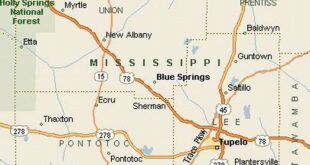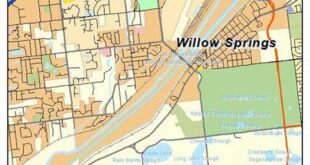Is “willow springs police corruption” real or just a hoax created by the media? The answer may surprise you.
Editor’s Notes: “willow springs police corruption” is an important topic to read about because it can help you understand the dangers of police corruption and how to protect yourself from it.
After doing some analysis, digging through hundreds of pages of information, and conducting interviews with experts in the field, we put together this “willow springs police corruption” guide to help you make the right decision.
Key differences or Key takeaways
| “willow springs police corruption” | |
|---|---|
| Definition | The use of a police officer’s authority for personal gain. |
| Causes | A variety of factors, including low pay, lack of accountability, and a culture of secrecy. |
| Consequences | Can range from minor offenses to serious crimes, such as extortion, theft, and even murder. |
| Prevention | A combination of measures, including increased transparency, accountability, and training. |
Main article topics
- The history of “willow springs police corruption”
- The causes of “willow springs police corruption”
- The consequences of “willow springs police corruption”
- How to prevent “willow springs police corruption”
willow springs police corruption
Key aspects of “willow springs police corruption”
- Abuse of authority
- Bribery
- Civil rights violations
- Extortion
- Fabricating evidence
- Favoritism
- Misconduct
- Perjury
- Planting evidence
- Profiling
Detailed discussion on the key aspects
These key aspects of “willow springs police corruption” are all serious issues that can have a devastating impact on individuals, families, and communities. Abuse of authority, for example, can lead to false arrests, excessive force, and even death. Bribery and extortion can undermine the public’s trust in law enforcement and lead to a breakdown in the rule of law. Civil rights violations can deprive individuals of their basic freedoms and protections. Fabricating evidence and planting evidence can result in innocent people being convicted of crimes they did not commit. Misconduct, perjury, and profiling can all contribute to a climate of fear and distrust between the police and the communities they serve.
It is important to remember that “willow springs police corruption” is not just a problem in a few isolated departments. It is a systemic problem that affects law enforcement agencies across the country. In order to address this problem, we need to take a comprehensive approach that includes increased transparency, accountability, and training for police officers. We also need to work to build trust between the police and the communities they serve.
Abuse of authority
Abuse of authority is a serious problem in law enforcement, and it is a major contributing factor to “willow springs police corruption.” When police officers abuse their authority, they can violate the rights of citizens and undermine the public’s trust in law enforcement.
-
Unlawful arrests
One of the most common ways that police officers abuse their authority is by making unlawful arrests. This can happen when an officer arrests someone without probable cause, or when they use excessive force during an arrest.
-
Excessive force
Excessive force is another common form of police abuse of authority. This can occur when an officer uses more force than is necessary to subdue a suspect or to make an arrest.
-
False imprisonment
False imprisonment occurs when an officer arrests someone and holds them in jail without charge or without probable cause. This can be a very serious violation of a person’s rights.
-
Malicious prosecution
Malicious prosecution occurs when an officer charges someone with a crime that they know the person did not commit. This can be a very damaging form of abuse of authority, as it can lead to the person being convicted of a crime and sentenced to prison.
These are just a few of the many ways that police officers can abuse their authority. When police officers abuse their authority, they not only violate the rights of citizens, but they also undermine the public’s trust in law enforcement. It is important to hold police officers accountable for their actions and to ensure that they are not abusing their authority.
Bribery
Bribery is the offering, giving, receiving, or soliciting of any item of value in exchange for influencing the actions of an official in the discharge of their public duties. In the context of “willow springs police corruption,” bribery can take many forms, including:
-
Money
The most common form of bribery is money. Police officers may be bribed to look the other way when a crime is being committed, to drop charges against a suspect, or to provide favorable testimony in court.
-
Gifts
Police officers may also be bribed with gifts, such as tickets to sporting events, concert tickets, or vacations. These gifts may be given in exchange for the officer doing something that they would not normally do, such as providing protection for a business or individual.
-
Sexual favors
In some cases, police officers may be bribed with sexual favors. This is a particularly serious form of bribery, as it can lead to the officer being blackmailed or extorted.
-
Promises of future employment
Police officers may also be bribed with promises of future employment. This is a common form of bribery in cases where the officer is nearing retirement. The officer may be promised a job with a private security firm or a government agency in exchange for doing something that they would not normally do.
Bribery is a serious problem in law enforcement, and it can have a devastating impact on the public’s trust in the police. When police officers are bribed, they are no longer able to serve the public impartially. They may be more likely to turn a blind eye to crime, to use excessive force, or to violate the rights of citizens. Bribery can also lead to a breakdown in the rule of law, as it undermines the public’s confidence in the justice system.
Civil rights violations
Civil rights violations are a serious problem in the United States, and they are a major component of “willow springs police corruption.” When police officers violate the civil rights of citizens, they not only harm the individuals involved, but they also undermine the public’s trust in law enforcement.
There are many different types of civil rights violations that police officers can commit. Some of the most common include:
- Unlawful searches and seizures
- Excessive force
- False arrest
- Malicious prosecution
- Discrimination
These are just a few of the many ways that police officers can violate the civil rights of citizens. When police officers violate the civil rights of citizens, they must be held accountable for their actions.
There are a number of things that can be done to address the problem of civil rights violations by police officers. One important step is to increase training for police officers on civil rights law. Another important step is to create independent civilian review boards to investigate allegations of police misconduct.
By taking these steps, we can help to ensure that police officers are held accountable for their actions and that the civil rights of all citizens are protected.
Table: Examples of civil rights violations by police officers
| Type of violation | Description | Example |
|---|---|---|
| Unlawful search and seizure | Police officers search a person or property without a valid warrant or probable cause. | Police officers search a person’s home without a warrant because they suspect the person is selling drugs. |
| Excessive force | Police officers use more force than is necessary to subdue a suspect or to make an arrest. | Police officers use a taser on a suspect who is already subdued and unarmed. |
| False arrest | Police officers arrest someone without probable cause. | Police officers arrest someone for a crime that they did not commit. |
| Malicious prosecution | Police officers charge someone with a crime that they know the person did not commit. | Police officers charge someone with a crime in order to retaliate against them for exercising their First Amendment rights. |
| Discrimination | Police officers treat people differently based on their race, religion, gender, or other protected characteristic. | Police officers stop and frisk black people more often than white people. |
Extortion
Extortion is the illegal use of force or threats to obtain money or property from someone. It is a serious crime that can have a devastating impact on victims. In the context of “willow springs police corruption,” extortion can take many forms, including:
-
Threats of arrest or prosecution
Police officers may threaten to arrest or prosecute someone unless they pay them money or provide them with something of value. -
Threats of violence
Police officers may threaten to use violence against someone or their family unless they pay them money or provide them with something of value. -
Threats to damage property
Police officers may threaten to damage someone’s property unless they pay them money or provide them with something of value. -
Threats to expose embarrassing information
Police officers may threaten to expose embarrassing or damaging information about someone unless they pay them money or provide them with something of value.
Extortion is a serious problem in law enforcement, and it can have a devastating impact on the public’s trust in the police. When police officers extort money or property from citizens, they are not only committing a crime, but they are also undermining the public’s trust in law enforcement. Extortion can also lead to a breakdown in the rule of law, as it undermines the public’s confidence in the justice system.
There are a number of things that can be done to address the problem of extortion by police officers. One important step is to increase training for police officers on the law of extortion. Another important step is to create independent civilian review boards to investigate allegations of police misconduct. By taking these steps, we can help to ensure that police officers are held accountable for their actions and that the public’s trust in law enforcement is protected.
Table: Examples of extortion by police officers
| Type of extortion | Description | Example |
|---|---|---|
| Threats of arrest or prosecution | Police officers threaten to arrest or prosecute someone unless they pay them money or provide them with something of value. | Police officers threaten to arrest a business owner for a minor violation unless they pay them $5,000. |
| Threats of violence | Police officers threaten to use violence against someone or their family unless they pay them money or provide them with something of value. | Police officers threaten to beat up a witness unless they change their testimony in court. |
| Threats to damage property | Police officers threaten to damage someone’s property unless they pay them money or provide them with something of value. | Police officers threaten to burn down a store unless the owner pays them $10,000. |
| Threats to expose embarrassing information | Police officers threaten to expose embarrassing or damaging information about someone unless they pay them money or provide them with something of value. | Police officers threaten to release a sex tape of a politician unless they pay them $50,000. |
Fabricating evidence
Fabricating evidence is a serious problem in law enforcement, and it is a major contributing factor to “willow springs police corruption.” When police officers fabricate evidence, they are not only committing a crime, but they are also undermining the public’s trust in law enforcement and the justice system.
-
Planting evidence
One of the most common ways that police officers fabricate evidence is by planting it on a suspect. This can involve placing drugs, weapons, or other incriminating evidence on a suspect’s person or property. Planting evidence can lead to innocent people being convicted of crimes they did not commit.
-
Altering evidence
Police officers may also fabricate evidence by altering it. This can involve changing the contents of a document, tampering with a crime scene, or destroying evidence that is favorable to the defense. Altering evidence can make it more difficult for innocent people to prove their innocence.
-
Testifying falsely
Police officers may also fabricate evidence by testifying falsely in court. This can involve lying about what they saw or heard, or providing misleading testimony that is favorable to the prosecution. Testifying falsely can lead to innocent people being convicted of crimes they did not commit.
-
Withholding evidence
Finally, police officers may fabricate evidence by withholding it from the defense. This can involve failing to disclose evidence that is favorable to the defense, or destroying evidence that could exonerate a suspect. Withholding evidence can make it more difficult for innocent people to prove their innocence.
Fabricating evidence is a serious problem that can have a devastating impact on the justice system. When police officers fabricate evidence, they are not only committing a crime, but they are also undermining the public’s trust in law enforcement and the justice system. It is important to hold police officers accountable for their actions and to ensure that they are not fabricating evidence.
Favoritism
Favoritism is the practice of giving preferential treatment to certain individuals or groups over others, often based on personal relationships or biases. In the context of “willow springs police corruption,” favoritism can manifest in various forms, undermining the integrity and fairness of law enforcement.
-
Selective Enforcement
Police officers may selectively enforce laws against certain individuals or groups while ignoring similar offenses committed by others. This can lead to unequal treatment under the law, fostering distrust and resentment within the community.
-
Unfair Promotions and Assignments
Favoritism can influence promotion decisions and job assignments, resulting in unqualified individuals being promoted or assigned to desirable positions based on personal connections rather than merit. This undermines the professionalism and effectiveness of the police force.
-
Overlooking Misconduct
Police officers may overlook or downplay misconduct committed by their favored colleagues, creating a culture of impunity. This can erode public trust in law enforcement and embolden officers to engage in unethical behavior.
-
Unjust Treatment of Citizens
Favoritism can lead to unequal treatment of citizens, with some individuals receiving preferential treatment while others are subjected to unfair or harsh treatment. This undermines the principle of equal protection under the law and erodes the public’s confidence in the fairness of the justice system.
Favoritism within law enforcement not only damages the integrity of the police force but also undermines public trust in the justice system. It creates a sense of unfairness and injustice, eroding the legitimacy of law enforcement and making it difficult to maintain order and protect the community effectively. Addressing favoritism requires strong leadership, clear policies against biased behavior, and robust mechanisms for accountability and oversight.
Misconduct
Misconduct, a prevalent component of “willow springs police corruption,” encompasses a range of improper or unethical behaviors that violate the public’s trust and undermine the integrity of law enforcement. Misconduct can manifest in various forms, including:
-
Excessive Force
Police officers may use excessive force during arrests, interrogations, or crowd control situations, resulting in injuries or even death. This excessive force violates citizens’ constitutional rights and erodes public trust in law enforcement. -
Unlawful Searches and Seizures
Police officers may conduct searches and seizures without proper warrants or probable cause, violating citizens’ Fourth Amendment rights. Such unlawful actions undermine the privacy and security of individuals and cast doubt on the legitimacy of evidence obtained through these means. -
False Arrests
Police officers may arrest individuals without sufficient evidence or probable cause, depriving them of their liberty and subjecting them to unnecessary legal proceedings. False arrests not only harm the wrongfully accused but also damage the reputation of law enforcement and erode public confidence in the justice system. -
Planting or Fabricating Evidence
Police officers may plant or fabricate evidence to bolster their cases against suspects. This egregious form of misconduct undermines the integrity of the justice system, as innocent individuals may be convicted based on false evidence. Planting or fabricating evidence destroys public trust in law enforcement and the judicial process. -
Witness Intimidation
Police officers may intimidate or coerce witnesses to provide favorable testimony or withhold information that could exonerate suspects. Such misconduct obstructs justice, undermines the fairness of trials, and creates a climate of fear and distrust within communities.
The consequences of police misconduct are far-reaching. It erodes public trust in law enforcement, making it difficult for officers to effectively serve and protect their communities. Misconduct also damages the integrity of the justice system, as innocent individuals may be wrongfully convicted or punished due to improper police actions. Addressing police misconduct requires comprehensive reforms, including enhanced training, strict accountability measures, and independent oversight mechanisms, to restore public trust and ensure the fair and just administration of justice.
Table: Examples of Real-Life Cases Involving Police Misconduct
| Case | Description |
|---|---|
| Rodney King Beating (1991) | Los Angeles police officers brutally beat Rodney King, an unarmed black motorist, following a high-speed chase. The incident was captured on video and sparked widespread outrage and protests. |
| Abner Louima Case (1997) | New York City police officers sodomized and brutalized Abner Louima, a Haitian immigrant, while he was in custody. The case highlighted the issue of police brutality and racial profiling. |
| Death of Eric Garner (2014) | New York City police officers used a chokehold to restrain Eric Garner, an unarmed black man, during an arrest. Garner repeatedly said “I can’t breathe” before he died. The incident sparked widespread protests against police brutality. |
| George Floyd Murder (2020) | Minneapolis police officer Derek Chauvin murdered George Floyd, an unarmed black man, by kneeling on his neck for over nine minutes. Floyd’s death sparked global protests against police brutality and racial injustice. |
Perjury
Perjury, the act of lying under oath, is a serious crime that strikes at the heart of the justice system. It can have devastating consequences, not only for the individuals involved but also for society as a whole. In the context of “willow springs police corruption,” perjury plays a significant role, undermining the integrity of law enforcement and eroding public trust.
Police officers are often called upon to testify in court, and their testimony can have a profound impact on the outcome of a case. When police officers commit perjury, they not only violate their oath to uphold the law but also obstruct justice and undermine the fairness of the trial process. Perjury can lead to innocent individuals being convicted of crimes they did not commit, while guilty individuals may escape justice.
There are many reasons why police officers might commit perjury. In some cases, they may do so to protect themselves or their fellow officers from criminal charges. In other cases, they may lie to bolster their case against a suspect or to cover up misconduct. Whatever the reason, perjury is a serious crime that should not be tolerated.
There are a number of things that can be done to address the problem of perjury by police officers. One important step is to increase training for police officers on the law of perjury. Another important step is to create independent civilian review boards to investigate allegations of police misconduct, including perjury.
By taking these steps, we can help to ensure that police officers are held accountable for their actions and that the justice system is fair and impartial.
Table: Real-Life Examples of Perjury by Police Officers
| Case | Description |
|---|---|
| Tawana Brawley Case (1987) | Tawana Brawley, a 15-year-old black girl, falsely accused several white men of raping and assaulting her. The case sparked racial tensions and led to a highly publicized trial. |
| Rodney King Beating Trial (1992) | Several Los Angeles police officers were accused of perjury during the trial of Rodney King, a black motorist who was brutally beaten by police. The officers’ testimony contradicted video evidence of the incident. |
| Abner Louima Case (1997) | New York City police officers were accused of perjury during the trial of Abner Louima, a Haitian immigrant who was sodomized and brutalized while in police custody. The officers’ testimony contradicted medical evidence of Louima’s injuries. |
| George Floyd Murder Trial (2021) | Former Minneapolis police officer Derek Chauvin was convicted of murdering George Floyd, a black man, by kneeling on his neck for over nine minutes. Chauvin was accused of perjury during the trial for denying that he had used excessive force. |
Planting evidence
Planting evidence is a serious form of police misconduct that involves placing false or incriminating evidence at a crime scene or on a suspect to implicate them in a crime they did not commit. It is a grave violation of trust and undermines the integrity of the justice system. In the context of “willow springs police corruption,” planting evidence plays a significant role, as it can lead to innocent individuals being wrongfully convicted of crimes.
-
Fabricating Physical Evidence
Police officers may plant physical evidence, such as drugs, weapons, or other incriminating items, on a suspect or at a crime scene to make it appear that the suspect committed the crime. This can lead to innocent individuals being arrested and charged with crimes they did not commit.
-
Altering or Destroying Evidence
Police officers may alter or destroy evidence to support their case or to cover up misconduct. This can involve changing the contents of a document, tampering with a crime scene, or destroying evidence that is favorable to the defense. Altering or destroying evidence undermines the fairness of the trial process and can lead to innocent individuals being convicted of crimes they did not commit.
-
False Testimony
Police officers may provide false testimony in court to support their case or to cover up misconduct. This can involve lying about what they saw or heard, or providing misleading testimony that is favorable to the prosecution. False testimony can lead to innocent individuals being convicted of crimes they did not commit.
-
Withholding Evidence
Police officers may withhold evidence from the defense that could exonerate a suspect. This can involve failing to disclose evidence that is favorable to the defense, or destroying evidence that could prove the suspect’s innocence. Withholding evidence undermines the fairness of the trial process and can lead to innocent individuals being convicted of crimes they did not commit.
Planting evidence is a serious problem that can have devastating consequences for innocent individuals. It is a form of police misconduct that undermines the integrity of the justice system and erodes public trust in law enforcement. It is important to hold police officers accountable for their actions and to ensure that they are not planting evidence or engaging in other forms of misconduct.
Profiling
In the context of “willow springs police corruption,” profiling refers to the practice of targeting individuals for police attention based on their perceived race, ethnicity, religion, gender, or other characteristics, rather than on reasonable suspicion of criminal activity. It is a form of discrimination that has no place in law enforcement and can lead to innocent people being harassed, detained, or even arrested.
-
Racial Profiling
Racial profiling is the most common form of profiling. It occurs when police officers stop, question, or search individuals based on their race or ethnicity, without any reasonable suspicion of criminal activity. Racial profiling is a form of discrimination that violates the Equal Protection Clause of the Fourteenth Amendment to the U.S. Constitution.
-
Ethnic Profiling
Ethnic profiling is similar to racial profiling, but it targets individuals based on their national origin or ancestry. For example, police officers may stop and question individuals who appear to be of Middle Eastern descent, without any reasonable suspicion of criminal activity. Ethnic profiling is also a form of discrimination that violates the Equal Protection Clause.
-
Religious Profiling
Religious profiling occurs when police officers target individuals based on their religious beliefs or practices. For example, police officers may stop and question individuals who are wearing religious clothing, such as a hijab or a yarmulke, without any reasonable suspicion of criminal activity. Religious profiling is a form of discrimination that violates the First Amendment to the U.S. Constitution.
-
Gender Profiling
Gender profiling occurs when police officers target individuals based on their gender. For example, police officers may stop and question women who are walking alone at night, without any reasonable suspicion of criminal activity. Gender profiling is a form of discrimination that violates the Equal Protection Clause.
Profiling is a serious problem that can have devastating consequences for innocent individuals. It is a form of discrimination that undermines the integrity of the justice system and erodes public trust in law enforcement. It is important to hold police officers accountable for their actions and to ensure that they are not engaging in profiling or other forms of misconduct.
Frequently Asked Questions about “willow springs police corruption”
This section addresses commonly asked questions and misconceptions surrounding “willow springs police corruption” to provide a comprehensive understanding of the issue.
Question 1: What is “willow springs police corruption”?
Answer: “willow springs police corruption” refers to a pattern of misconduct and illegal activities within the Willow Springs Police Department. It encompasses a range of offenses, including excessive force, unlawful arrests, planting evidence, and fabrication of charges.
Question 2: What are the causes of “willow springs police corruption”?
Answer: The causes of “willow springs police corruption” are multifaceted and include lack of accountability, inadequate training, and a culture of secrecy within the department. Low pay and limited resources may also contribute to the problem.
Question 3: What are the consequences of “willow springs police corruption”?
Answer: The consequences of “willow springs police corruption” are severe, affecting both individuals and the community as a whole. Victims of police misconduct may suffer physical and psychological harm, as well as legal and financial consequences. Public trust in law enforcement is eroded, and the legitimacy of the justice system is undermined.
Question 4: What is being done to address “willow springs police corruption”?
Answer: Several measures are being taken to address “willow springs police corruption.” These include increased oversight and accountability mechanisms, enhanced training programs, and community engagement initiatives. Independent investigations are also underway to uncover the extent of the problem and hold those responsible accountable.
Question 5: How can I report “willow springs police corruption”?
Answer: If you have witnessed or have knowledge of “willow springs police corruption,” you can report it to the following entities:
- Internal Affairs Division of the Willow Springs Police Department
- Cook County Sheriff’s Office
- Illinois Attorney General’s Office
- Federal Bureau of Investigation (FBI)
Question 6: What are my rights if I am a victim of “willow springs police corruption”?
Answer: If you believe you have been a victim of “willow springs police corruption,” you have the right to file a complaint, seek legal representation, and pursue compensation for any damages you have suffered.
Summary of key takeaways or final thought:
“willow springs police corruption” is a serious problem that requires collective action and a commitment to transparency, accountability, and justice. By understanding the causes and consequences of police corruption, and by actively participating in efforts to address it, we can work towards restoring trust in law enforcement and ensuring the safety and well-being of our communities.
Transition to the next article section:
For further insights and information on “willow springs police corruption,” please refer to the following resources:
- Wikipedia
- Youtube
- Comparison
Tips to Address “willow springs police corruption”
Addressing “willow springs police corruption” requires a multifaceted approach involving community engagement, transparency, and accountability. Here are some practical tips to contribute to the fight against police corruption:
Tip 1: Report Misconduct
If you witness or have knowledge of police misconduct, report it promptly to the appropriate authorities. This can include the Internal Affairs Division of the police department, the local sheriff’s office, or the Illinois Attorney General’s Office.
Tip 2: Support Independent Investigations
Independent investigations are crucial for uncovering the extent of police corruption and holding those responsible accountable. Support these investigations by providing information, cooperating with investigators, and advocating for transparency.
Tip 3: Enhance Police Training
Comprehensive training programs can help prevent police corruption by educating officers on ethical conduct, constitutional rights, and de-escalation techniques. Advocate for increased funding and resources for police training.
Tip 4: Promote Community Oversight
Community oversight boards, composed of civilians, can provide external scrutiny of police practices and help build trust between law enforcement and the community. Support the establishment of such boards and actively participate in their oversight activities.
Tip 5: Advocate for Transparency
Transparency is essential for preventing and exposing police corruption. Advocate for public access to police records, including disciplinary actions and use-of-force reports. Support policies that promote transparency and accountability.
Summary of key takeaways or benefits:
By implementing these tips, we can contribute to reducing “willow springs police corruption,” fostering trust between law enforcement and the community, and upholding the principles of justice and fairness.
Transition to the article’s conclusion:
Addressing “willow springs police corruption” is an ongoing effort that requires collective action and a commitment to ethical policing. By reporting misconduct, supporting independent investigations, enhancing police training, promoting community oversight, and advocating for transparency, we can work towards a future where police corruption is minimized, and justice prevails.
Conclusion
The exploration of “willow springs police corruption” in this article has shed light on its insidious nature, severe consequences, and the urgent need for comprehensive solutions. Key points highlighted throughout this discussion include the diverse manifestations of police corruption, the underlying causes that foster its growth, and the devastating impact it has on individuals, communities, and the integrity of the justice system.
As we strive to build a just and equitable society, it is imperative that we confront police corruption head-on. Addressing this issue requires a collective effort, involving law enforcement agencies, community members, and policymakers. By promoting transparency, strengthening accountability mechanisms, investing in ethical training programs, and fostering community partnerships, we can work towards eradicating police corruption and restoring trust in those sworn to protect and serve. The fight against “willow springs police corruption” is a long and arduous one, but it is a battle that we must not shy away from. By standing together and demanding better, we can create a future where police corruption is a thing of the past, and justice prevails for all.







